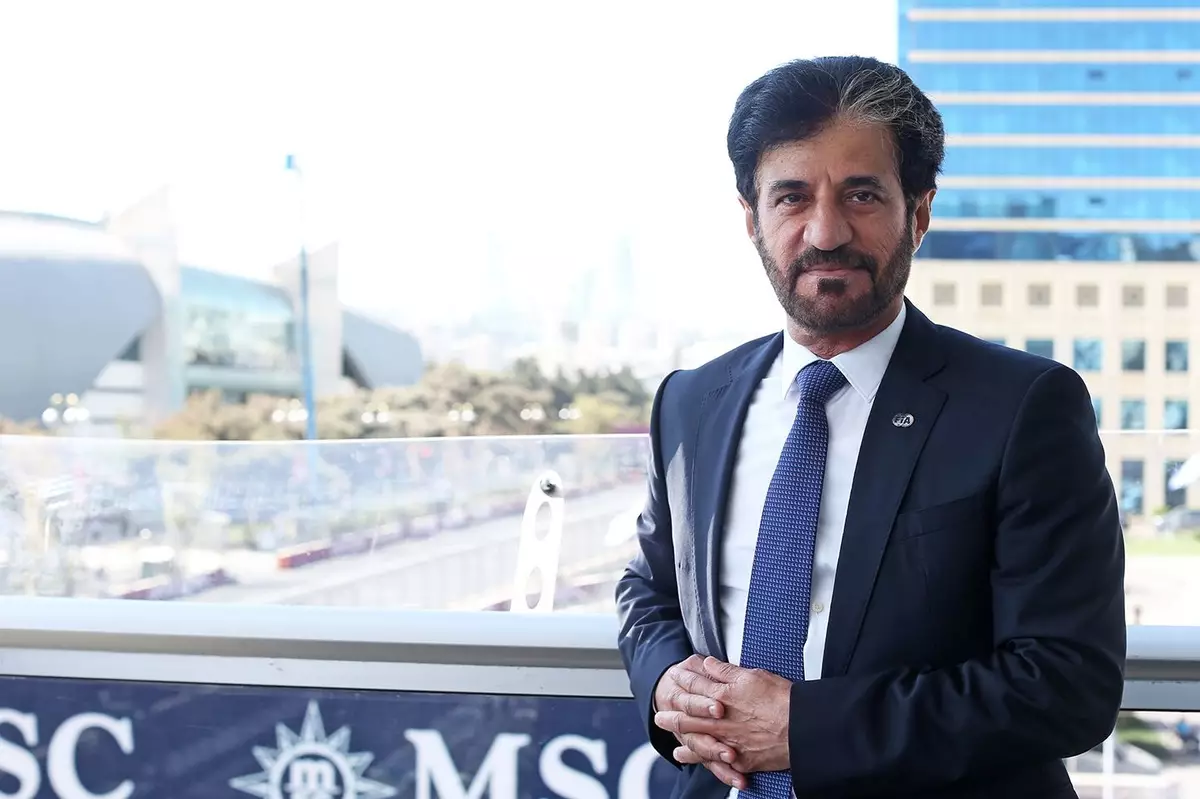In the realm of motorsport governance, the interplay between leadership and media portrayal is frequently contentious. This is exemplified by the recent comments made by FIA President Mohammed Ben Sulayem, who has articulated a sense of being unfairly judged by certain sectors of the British media during his presidency. The backdrop of this discussion is Adrian Newey’s insights shared on the High Performance podcast, where he echoed sentiments regarding the unjust treatment of both Max Verstappen and former Red Bull driver Sebastian Vettel by these media outlets.
Ben Sulayem’s agreement with Newey’s observations reflects a broader concern about media narratives that may disproportionately vilify athletes and officials. His defensive stance suggests that these narratives can shape public perception, leading to a modified understanding of individual contributions within the sport. It raises questions about the ethics of media reporting in high-stakes environments, where the consequences can affect reputations and careers.
During an exclusive interview with Autosport, Ben Sulayem did not shy away from articulating his frustrations. He expressed, “If you look at the British media and what they did to me… For God’s sake, they convicted me.” His statement underscores a feeling among leaders in high-profile sports that media coverage can shift from critique to condemnation, blurring the lines between holding power accountable and damaging reputations without substantiated evidence.
Importantly, Ben Sulayem’s remarks prompt an inquiry into the motivations behind journalistic choices. He speculated that the media’s pursuit of captivating stories often overshadows the ethical responsibility to present facts fairly. In a world that increasingly values sensationalism over substance, such behavior is not only detrimental to individuals like Ben Sulayem but also to the integrity of the motorsport community at large.
Ben Sulayem emphasized that neither he nor the FIA should be beholden to media perspectives. “They have no power over me and over the FIA,” he reaffirmed, drawing attention to the democratic structure that brought him to office. This assertion of independence is fundamental for any governing body, as it ensures that decisions are based on the welfare of the sport rather than external pressures. He champions the importance of direct accountability to the membership of the FIA, highlighting the democratic process that empowers him—a perspective that fosters an environment where opinions, including critical ones, should not inherently sway governance.
Moreover, the FIA’s role as an independent federation necessitates a clear distinction between media assessment and organizational integrity. Ben Sulayem argues for a return to business as usual, focusing on advancing the sport rather than engaging in conflicts with media outlets, which he notes only seek coverage and approval for their own ratings.
The FIA president further reflected on how external criticism has only fortified his resolve. “They made me stronger. I’m more careful now and more wise,” he stated, indicating that adversity can serve as a catalyst for growth. This adaptive mindset fosters a strategic approach to leadership, where challenges are met with resilience rather than defensiveness.
Such insights resonate with leaders across all fields, emphasizing the importance of perseverance amidst scrutiny. In Ben Sulayem’s view, the support of member clubs and the foundational strength of the FIA ensures that external narratives—whether negative or positive—become secondary to the league’s cohesive goals.
As he eyes re-election, Ben Sulayem is optimistic about the current state of the FIA compared to the challenges endemic to his earlier tenure. He highlighted advancements in organizational efficiency, citing that „things move faster when it comes to delivery“ and reinforcing a commitment to the federation’s core mission: listening to the members.
Ben Sulayem strategically emphasizes the turnaround of the FIA, noting that a robust federation is crucial for the continued investment of teams in championships. The discourse surrounding leadership goals is pivotal; his prioritization of fulfilling his manifesto demonstrates an understanding that the success of the FIA hinges on meeting the expectations of its members.
Mohammed Ben Sulayem’s remarks provide a candid lens into the dynamic between media perception and sports governance. His focus on resilience, democratic values, and organizational integrity speaks to the evolving landscape of motorsport leadership, where independence from media bias is critical to fostering a vibrant and dynamic sporting environment.


Napsat komentář